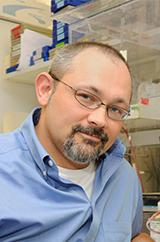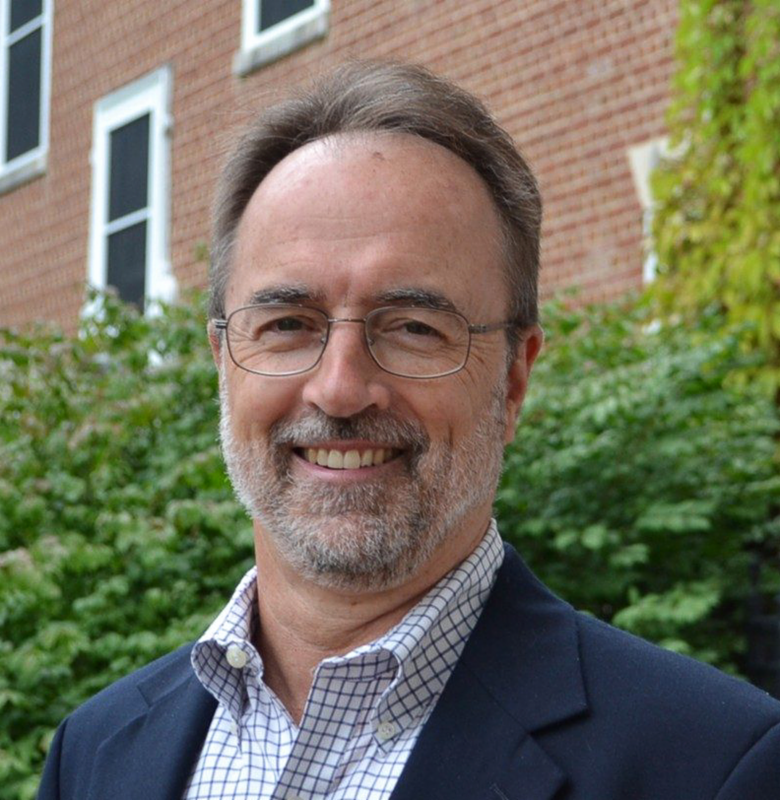October 15-19, 2017
 20th IVBM
Helsinki, Finland
June 3-7, 2018
20th IVBM
Helsinki, Finland
June 3-7, 2018
Vasculata 2018
St. Louis, MO
July 23 - 26, 2018
 Vascular Biology Vascular Biology
Newport, RI
October 14-18, 2018
|
Congratulations to
Angiogenesis!
The new 2016 impact factor for
Angiogenesis has increased to
5.253*.
* 2016 Journal Citation Reports (Clarivate Analytics, 2017)
|
|
|
|
Nano-Talks at Vascular Biology 2017
|
Call for Nano-Talks
The session of nano-talks was a big hit at our 2015 meeting and we are bringing it back for 2017! Nano-talks are five minute presentations that feature only five slides. The session will be presented on Monday, October 16 from 4:30-5:00pm at Vascular Biology 2017.
If you have a great experiment or data that sheds light on a little understood area or illuminates a controversial area, AND it can be shown in 5 slides and 5 minutes, please consider participating in this session. This will be an exciting and fun opportunity to increase the exchange of ideas and concepts at VB2017!
To be selected to give a Nano-Talk: 1) Register to attend VB2017, 2) Send your name, affiliation and presentation title to [email protected] and 3) include a five-slide pdf of your presentation. This pdf does not have to be the final version but we want to make sure you can present your "story" in 5 slides/5 minutes. This is critical so that the session finishes on time.
Speakers will be selected by a review committee. We will accept no more than five speakers for this session and submissions must be received by September 15.
Online registration is open through October 12, 2017. Although discouraged, you can register onsite as well (there will be a $20 surcharge for onsite registration).
See all meeting details at www.navbo.org/vb2017
|
|
Meet Councilor A. Wayne Orr
|

Wayne Orr received a BA degree in Biology from Hendrix College in 1998 and a PhD in Pathology from the University of Alabama - Birmingham in 2002, working on endothelial focal adhesion turnover in response to the matricellular matrix protein thrombospondin-1. His subsequent post-doctoral work in the Cardiovascular Research Center at the University of Virginia explored the role of matrix composition in the endothelial cell response to shear stress. In 2007, Dr. Orr joined the faculty at the LSU Health Sciences Center - Shreveport where he has risen up the ranks to full Professor and Director of the Research Division in the Department of Pathology and Translational Pathobiology. In addition, Dr. Orr was recently named as the Director of the Center for Cardiovascular Diseases and Sciences (CCDS) at LSUHSC-Shreveport.
Dr. Orr is recognized for his work on the regulation of vascular cell phenotype by hemodynamics and cell-matrix interactions during atherosclerotic plaque formation. His laboratory is particularly interested in the signaling mechanisms underlying endothelial activation in response to shear and oxidant stress and in the role of integrin-specific signaling in the regulation of vascular cell function. In addition, Dr. Orr's laboratory examines how classic axonal guidance molecules regulate vascular remodeling during atherosclerotic plaque formation.
In addition to his involvement in NAVBO, Dr. Orr is a member of the Editorial Board of the American Journal of Pathology and the Leadership Committee for the Arteriosclerosis, Thrombosis, and Vascular Biology (ATVB) Council of the American Heart Association. Dr. Orr also serves as the Co-Chair of the ATVB Membership and Communications Committee and as a charter member of the Vascular Cell and Molecular Biology (VCMB) Study Section for the National Institute of Health.
|
|
Spotlight on Trainees
(from the August 3 issue)
|
Free Access to Scientific Literature Collections for Post-docs
Elsevier,
producer of thousands of publications for professional science and healthcare communities worldwide, is offering unlimited complimentary access to all of its journals and books on
ScienceDirect, for up to one year for scholars who recently received their PhDs and currently do not hold a research position. The "
Postdoc Free Access Passport" is available by
application and aims to help scientists stay current in their fields when between positions, during funding droughts, or while working afield from their true expertise. Continued access to the scientific literature can be a lifeline for staying competitive and connected to the research community.
|
|
Training Programs on the NAVBO Website
|
New Resource for Trainees
The NAVBO web site has many helpful resources. Our newest addition is a listing of Training Programs in the US. You will find this list, grouped by regions in the US, at http://www.navbo.org/resources/trainingprograms. Be sure to bookmark this page for future reference as it is constantly growing. We now have over 20 listings.
If you are the director or administrator of a Training Program and would like to have your program listed here, please send your information to [email protected].
|

Congratulations to William Huckle!
William Huckle, Ph.D.
, Editor of the NAVBO Newsletter since 2004 and Associate Professor of Biomedical Sciences and Pathobiology in the College of Veterinary Medicine at Virginia Tech, has been appointed Associate Dean of the Graduate School. In this new role, Dr. Huckle oversees the university's Interdisciplinary Graduate Education Programs and the Individual Interdisciplinary Doctoral program for the Graduate School. His laboratory's research focuses on the role of RNA processing variants in vascular development and immune function.
|
Welcome to our Newest Members:
Marco Castro, Uppsala University
Abbygail Foster, Stanford University
Alexis Seymour, Stanford University
|
|
Recent Publications by NAVBO Members
|
| Atherosusceptible Shear Stress Activates Endoplasmic Reticulum Stress to Promote Endothelial Inflammation
Scientific Reports
Atherosclerosis impacts arteries where disturbed blood flow renders the endothelium susceptible to inflammation. Cytokine activation of endothelial cells (EC) upregulates VCAM-1 receptors that target monocyte recruitment to atherosusceptible regions. Read more Rapamycin reversal of VEGF-C-driven lymphatic anomalies in the respiratory tract
Journal of Clinical Investigation Insight
Lymphatic malformations are serious but poorly understood conditions that present therapeutic challenges. The goal of this study was to compare strategies for inducing regression of abnormal lymphatics and explore underlying mechanisms. Read more A possible Fourier transform infrared-based plasma fingerprint of angiotensin-converting enzyme inhibitor-induced reversal of endothelial dysfunction in diabetic mice
Journal of Biophotonics
Angiotensin-converting enzyme inhibitors (ACE-I) display vasoprotective activity and represent the cornerstone in the treatment of cardiovascular diseases. Read more Atomic Force Microscopy Reveals the Dynamic Morphology of Fenestrations in Live Liver Sinusoidal Endothelial Cells
Scientific Reports
Here, the authors report an atomic force microscopy (AFM)-based imaging method for resolving the fine nanostructures (e.g., fenestrations) in the membranes of live primary murine liver sinusoidal endothelial cells (LSECs). Read more Annexin A2 supports pulmonary microvascular integrity by linking vascular endothelial cadherin and protein tyrosine phosphatases
The Journal of Experimental Medicine
Relative or absolute hypoxia activates signaling pathways that alter gene expression and stabilize the pulmonary microvasculature. Alveolar hypoxia occurs in disorders ranging from altitude sickness to airway obstruction, apnea, and atelectasis. Read more Phenotypically heterogeneous podoplanin-expressing cell populations are associated with the lymphatic vessel growth and fibrogenic responses in the acutely and chronically infarcted myocardium
PLoS One
Cardiac lymphatic vasculature undergoes substantial expansion in response to myocardial infarction (MI). However, there is limited information on the cellular mechanisms mediating post-MI lymphangiogenesis and accompanying fibrosis in the infarcted adult heart. Read more |
|
Industry News
(from the August 3 issue)
|
|
Brain Endothelial Cell Specialization at the Transcriptional Level
Investigators in Sweden and Germany have
reported in Science Signaling
their results of transcriptional profiling of
mouse embryonic brain endothelial cells, seeking to identify
elements involved in blood-brain barrier (BBB) development and to distinguish this specialized tissue from peripheral vascular beds.
Using translating ribosome affinity purification and single-cell RNA sequencing,
Hupe et al. note that brain vasculature-specific genes encoding transport, adhesion, and extracellular matrix factors were differentially expressed in brain endothelial cells compared to endothelial cells from other organs during embryonic development. These data offer a rich resource for understanding the unique developmental and functional properties of this highly specialized tissue a
nd may help to improve the creation of in vitro models of the BBB.
Merger of American Heart and American Society of Hypertension
Two major scientific and clinical organizations focused on cardiovascular disease and education plan to join forces, as reported by
PRNewswire
. As of 2018,
the American Society of Hypertension Board and Committee Members will be folded into the American Heart Association Hypertension Leadership Committee. Thus
ASH will dissolve as a singular enterprise, aligning its leadership, members, and activities with the mission and framework of the AHA. The unified organization will remain committed to funding innovative research, fighting for stronger public health policies, and providing critical tools, education, and information to save and improve lives affected by diseases of the circulatory system.
AJP - Heart and Circulatory Physiology
Seeks Papers on Select Topics
The American Journal of Physiology's periodical focused on cardiac and vascular topics has issued a
special call for papers
on select topics. Of particular interest to NAVBO members may be the appeal for papers on "Extracellular Matrix in Cardiovascular Pathophysiology," due by February 1, 2018. Special call editors Drs. Martinez-Lemus, Bloksgaard, and Lindsey
welcome original manuscripts
addressing specific mechanisms that intersect ECM-cellular interactions in any area or component of the cardiovascular system, as well as on the mechanisms by which specific ECM remodeling characteristics affect cell signaling, inflammation, and tissue repair. Other topics identified include "Cardiac Regeneration and Repair" and "Novel Mechanisms of Myocardial Ischemia, Ischemia - Reperfusion, and Protection by Myocardial Conditioning" (both due 2/1/18), as well as "miRNA Regulation of the Mitochondrion in Cardiovascular Disease" (8/31/17) and "Advances in Cardiovascular Geroscience" (9/30/17).
|
|
Advocating for Science - Call to Action
|
Contacting Your Representatives Can Make a Difference for Science
The Committee for a Responsible Federal Budget released a white paper today offering recommendations for short-term budget action, and the list starts with replacing the current sequestration budget caps with more reasonable (read "higher") budget limits. It speaks volumes when key national thought leaders from both sides of the aisle assert the need for a deal that provides more room for discretionary budget growth. Use this action alert to reinforce their call to action in this regard.
If you are a U.S. citizen, let your U.S. representatives hear from you and encourage them to be advocating for science. There are many methods by which to reach out - from attending meetings or personal visits to congressional offices, to doing something as simple as writing a postcard. Be sure to reach out to your district and state representatives. Now, in addition to funding the NIH budget and other federal biomedical research budgets, scientists must clearly express how other policies impact scientific collaboration, a key component in the scientific process.
For more information on public policy affecting the scientific community and ways that you can help, please visit NAVBO's Advocacy page - www.navbo.org/resources/advocate
Here are links to organizations that encourage, support and aid science advocates:
Coalition for the Life Sciences
Federation of American Societies for Experimental Biology (FASEB)
Research!America
If you are aware of other groups, please let us know and we will post them in future newsletter issues (send to [email protected]).
|
|
|